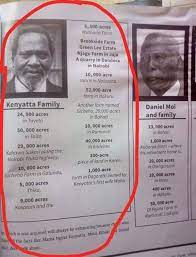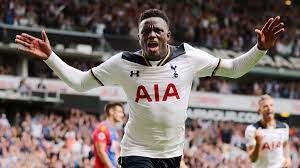 |
| BELIEVES ABOUT UNITY |
 Today, isn’t a lesser sin not to have well-written accounts of Bukusu culture and heritage than having few existing accounts having been written by outsiders? So, the Bukusu Sub-nation suffers from self-inflicted pain. For every elderly man or woman we bury, the further away we move from the pride of our heritage preservation. We have fallen short of writing poems, songs, stories and even pieces of performing art that would tell accurate stories about our way of life.
Today, isn’t a lesser sin not to have well-written accounts of Bukusu culture and heritage than having few existing accounts having been written by outsiders? So, the Bukusu Sub-nation suffers from self-inflicted pain. For every elderly man or woman we bury, the further away we move from the pride of our heritage preservation. We have fallen short of writing poems, songs, stories and even pieces of performing art that would tell accurate stories about our way of life. Karl Marx’s notion of consciousness was that of making political sense of life and self-awareness from which enormous pride of a people stems from. And we got to stop defining political identity in terms of voters but embrace a wider understanding of the Bukusu identity.A typical millennial from Western Kenya in the city street gets embarrassed in replying to greetings in the Native Bukusu language. Is the adoption of Western Culture (and language) the new normal to a point of hiding our native consciousness?
The debate on the failing Bukusu consciousness has lots of winding paths but for this piece, I focus on the fading religious beliefs and how the core rituals, which once defined a strong people, have become elusive. I will strike to the very core. When colonial imperialists came hunting for minerals and domination, they projected incorrect narratives about native African communities. They told us we were primitive (despite strong inter-clanal unity and coexistence) and missionaries reminded us that we worshiped false gods. That we had a backward way of life, and poor governance structures and so we had to turn to them for literacy and high order consciousness.
So we left everything and followed the pink man, surrendering our rituals, gods, lands, manpower, and authority unto them. They turned us against ourselves and we were bewildered on what we should believe in. Luckily, they lured us with their handworks, coins, bicycles, bibles, and even new language and ‘formal’ schooling system. White authors wrote negatively about out cultures and religions like Dini ya Musambwa being a ‘rural rebel’ politico-religious movement (See Vermouth’s 1980 article in The International Journal of African Historical Studies) and so on. They systemically targeted to weaken our self-identity, discarded our religious beliefs by limiting publications by locals who may have given more accurate accounts of our way of life. But, thanks to Anthropologists such as Dr. Patrick Makila, Prof Gideon Were, Dr. Florence Namulunda, Dr. Nganga Simon, Kizito Wasike Mukhwana who make in the list of fine scholars who have truly preserved bits of our history.
This is no atheist account (a word white missionaries devised to refer not just to the faithless but those unable to believe in God and Christ Jesus) but I am Roman Catholic. I explore the depths of Bukusu religious identity because I believe it is not as dark as the outsiders purposed the world to believe so).
Bukusu had authentic religious beliefs in a Supreme Being (Wele Khakaba- the Creator or molder). Khakaba was and is the giver of life and the source of all authority on land, in water and air. Under him were Wele Mukhobe (alluding to light), Wele Malaba (the Protector) and Wele Murume (the Messenger) and perhaps others more. In our unwritten religious dogmas, we believe in good and prayed for heavenly blessings for each other. We collectively helped the underprivileged, tilled land together, planted and sang harvest songs together. We made sacrifices to appease the Supreme Being like biblical Judah and Israelite communities. In periods of drought, we lifted our eyes to the sky and mountainous and Khakaba rewarded. We sang out folklores, told ancient stories of our war heroes and great heroines. From Mango Omukhurarwa, to Nambo mukho-Mwami and Wele wa Kasawa. From Mulya we Sang’alo to Mukite, Kharuba, Kikayi wa Weswa, Mukisu Lufwalula, and many others.
We detested stealing, murder, conflict. We outlawed witches, child molesters, those in same-sex relations, and cold blood killers. We held traditional ceremonies to cleanse incestuous people, night runners, children who fought parents and those with other marks of evil. We commissioned circumcisers and taught young men and women their gender roles. We adhered to rituals like khubita (counsel to newly circumcised), khukhwaya chikhafu (ceremonies of the dead), listened to baswala kumuse (public teachers), celebrated birth and death; and adhered to words of seers like Maina wa Nalukale, Wachiye, Mutonyi wa Bukelembe, and Manyi Omukhurarwa. We waged gentleman’s war not to inflict unnecessary harm but defend community interests.
We succeeded and failed in many instances but we were a united and spiritual people. Our religion was not dark, cultish or rebellious as most books on our culture say. Outsiders attacked our unity, encouraged us to leave our culture and rituals and we played right into it. It is true that just any other community, Babukusu have undergone evolution (See Worlf’s 1971 article Religious innovation and Social Change among the Bukusu) and we have embraced new forms of beliefs including Christianity (or Islam, based on one’s convenience). We have adopted new technologies, got a formal education and landed on careers to develop our country and our families. But we continue to lose some critical beliefs that define us. Who will teach us about traditional medicine? How the newly married should live? How to approach land issues, and make our homesteads strong? When to tap termites and gather bumekele? Who will preserve our vocabulary and teach us to sing ancient songs?
Where are our local culture writers? Who are investors in local music and film studios? Painters, narrators and performing artists? Unto whom does the weight of raising our consciousness lie?Until we reflect back on where we came, our future may not be any clearer. And what we tell our children’s children about our way of life?Santarayan, the philosopher, warned us that ‘those who do not learn history are doomed to repeat it’?











Comments